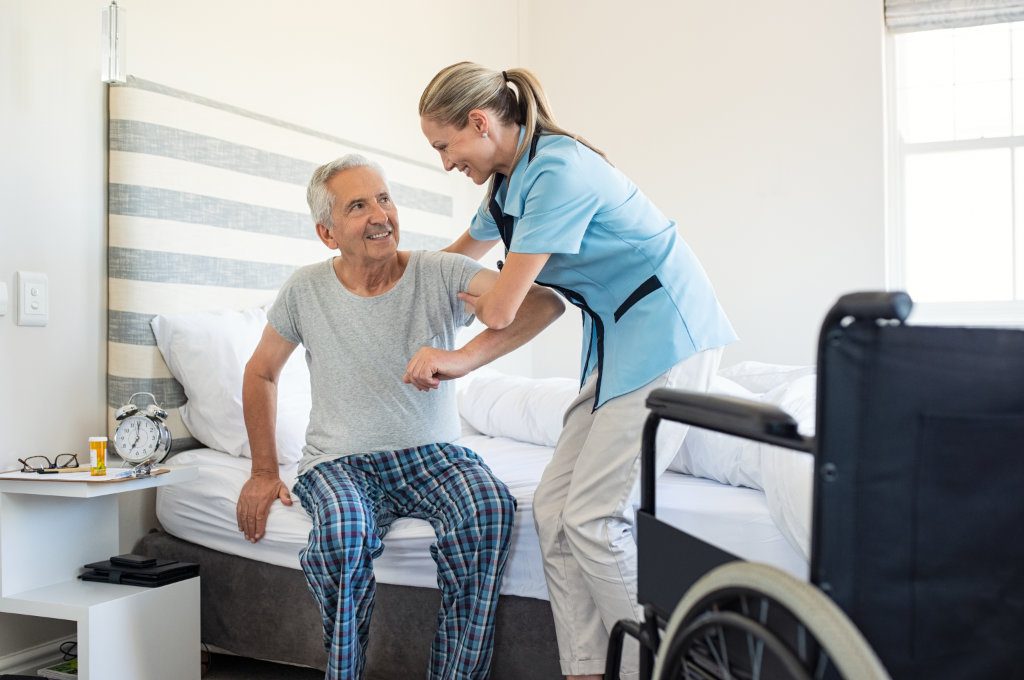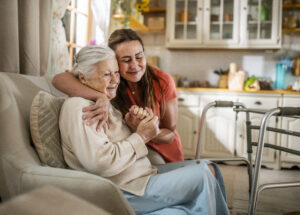According to Wikipedia activities of daily living, also known as ADLs, or ADL, is a term used in healthcare referencing the daily activities involving self-care. Activities of daily living are often used to measure the development or functional status of an individual.
The two classifications used to describe ADLs/ADL are basic or and instrumental activities of daily living. Healthcare professionals use these two classifications to evaluate anyone who is considered to be elderly, a senior, or a retiree. Basic activities of daily living may be modest functions to some; however, these ADLs may be great obstacles to others.
Basic Activities of Daily Living Examples
- Bathing
- Toileting
- Dressing
- Feeding
- Level of Mobility
- Transferring
Instrumental Activities of Daily Living Examples
- Using Technology (Phone, Tablet, Etc.)
- Shopping
- Food Preparation and Cooking
- Housekeeping/Laundry
- Transportation
- Taking Medication
There are 5 five different levels of ADLs that help assist with knowing where you or your loved ones are at when it comes to their specific needs for ADLs. Are you needing help for yourself or your loved one? Not sure if this is something that needs to be addressed with a doctor? Well, here is a guide to help assist with knowing where you or your loved one is at or where they should be according to the levels of activities of daily living.
Independent
An individual who is classified as independent is one who is not looking for the guidance of others. If you or your loved one(s) is classified as independent, then they should be fluent in the following:
- Independent in all areas of mobility and decision making in the event of an emergency
- Carry out all of the basic ADLs without assistance
- Food preparation and cooking
- Housekeeping/Laundry
- Plan and carry out social activities
Minimum Assistance
An individual requiring minimal assistance seeks very little help. If you or your loved one(s) is classified as needing minimum assistance, you should be able to do the following:
- Able to respond in an emergency
- Able to walk and transfer independently with infrequent falls
- Independent to verbal reminders
- Independent with medical appointments
- Assistance is helpful with meals and housekeeping
- Slight memory impairment
- The family is somewhat concerned
Stand-By Assist
Stand-by assistance is an individual who may need another individual available for assistance in certain circumstances. If you or your loved one is classified as a standby assist, then perhaps it may be time to consider assisted living for you or your loved one(s). A stand-by assist may have the following characteristics:
- May require some assistance in an emergency situation
- May need assistance with mobility and transfer
- Need reminders for verbal cues
- Medication management is helpful
- May need assistance with bathing
- Assistance is helpful with meals and housekeeping
- Encouragement is needed in participation in social activities
- May have mild memory impairment and sometimes be disorientated
- The family is concerned
Hands-On Assistance
Hands-on assistance describes an individual needing involvement from another person more often throughout the day. If you or your loved one(s) is classified as hands-on assist, then perhaps it may be time to consider assisted living or skilled care for you or your loved one(s). This classification is where the lines begin to blur on the proper establishment required to care for you or your loved one(s). Hands-on assistance may have the following characteristics:
- Need assistance in an emergency situation
- One person needs to assist with mobility and transfer
- Verbal cues to hands-on assistance
- Medication management is needed
- Incontinence management is needed
- Bathing assistance is needed
- Encouragement and being escorted is needed in participation in social activities
- Memory impairment as well as poor orientation is displayed with mild confusion
- The family is very concerned and feels as though intervention is needed
Total Assist
An individual that requires total assistance is likely to need assistance in all situations. If you or your loved one(s) are classified as total assist, then perhaps it may be time to consider a skilled nursing facility for yourself or your loved one as your primary residence. Total assist may have the following characteristics:
- Needs supervision in an emergency situation
- A medical lift or two-person assist is needed for mobility or transfer
- Hands-on assistance is needed for medication and behavioral management
- Bathing assistance is needed
- Verbal cues and hands-on assistance is needed to eat
- Encouragement and escort are needed to activities or one-on-one visits
- 24-hour nursing supervision is needed
- Constant assistance is needed
If you ever have a concern about yourself or a loved one(s), please consult with your doctor. No concern or worry is too small. It is better to have the knowledge that you need when it comes to your safety or the safety of a loved one(s).
At Culpepper Place of Olive Branch, we take pride in providing the best for the residents within our community. Please contact Culpepper Place of Olive Branch today to find out why we were voted the best assisted living community in Desoto County.






